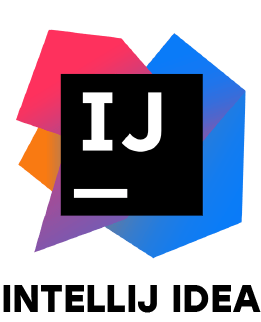Java Certification will equip you with the techie knowledge of its advanced functionalities like operators, arrays, loops, methods, and constructors by giving you hands-on practice in JDBC and JUnit framework etc. Get Enroll Now Our Best Java Training With Classroom & Online Training Course for Java Training Certification Program.
Additional Info
Why Java programming?
Platforms and applications using Java are among the most popular programming languages today. Because it was designed to be flexible, developers could write code that would run on any machine, regardless of architecture or platform.
1. Java’s Popularity and High Salary:
Java is one of the most popular languages in the world. It runs on about 7 billion devices worldwide and is used by almost 9 million developers. Java developers hold some of the most highly-paying jobs in the industry, due to the high demand for Java.
2. Java is Easy to Learn:
A syntax similar to English makes Java a simple language to learn and understand in a short amount of time. We will teach you the basics of Java and help you become proficient in it.
3. Java has a Large Community:
A large online community of Java users ranging from beginners to advanced to expert levels is particularly helpful if any assistance is needed.
4. Java has an abundant API:
Besides many Java classes, packages, and interfaces, Java also has a rich Application Programming Interface (API). For those who need to construct applications without knowing their internal implementations, this is useful.
There are three major types of Java APIs: The official Java core APIs, the optional Java core APIs, and unofficial Java APIs. Having a wide range of APIs allows developers to do almost everything from networking, I/O, databases, multimedia, XML parsing to speech synthesis.
5. Java has Powerful Development Tools:
Software developers have a variety of integrated development environments (IDEs) in Java that provide various features. Eclipse, NetBeans, IntelliJ IDEA, etc. are some of the most powerful Java IDE's available.
Debugging, syntax highlighting, automatic code completion, language support, code refactoring, etc. are just a few of the features provided by these IDEs that make coding in Java easier and faster.
In addition to creating the Android platform, Java is used by 90 percent of Fortune 500 companies for developing many backend applications. Furthermore, it is an integral part of Apache Hadoop data processing, Amazon Web Services, and Windows Azure.
6. Java is Free of Cost:
In addition to being free of charge, Java is very popular among individual programmers due to the Oracle Binary Code License (BCL). Java is free for test and development environments, but it is subject to a small charge for commercial purposes.
7. Java is Versatile:
Due to Java's versatility, it can be used to develop applications for the web, mobile devices, desktop computers, etc., on numerous platforms. Additionally, Java has many features that make it quite versatile, such as dynamic coding, a wide range of security features, platform independence, network centric design, etc.
Roles & responsibilities
Java developers can dramatically improve an organization's application functionality through the speed and scalability of their solutions. Java developers' daily tasks depend on the degree to which they own one or more applications. Despite this, many Java developers are involved in various aspects of the software development life cycle, in addition to programming. As a Java developer, this gives you the opportunity to practice DevOps by researching and suggesting alternative solutions to achieve their goals. Generally, they will be responsible for:
Java developers and engineers will have varying responsibilities depending on their companies and positions. A typical employee's responsibilities are as follows:
- Java application design, implementation, and maintenance for mission-critical systems that are typically high-volume and low-latency.
- Improving available and performance
- Contribute to the development lifecycle at every phase
- Writing efficient, well-designed, and testable code
- Providing software analysis, programming, testing, and debugging services
- Managing the development of Java and Java EE applications
- Making sure designs are compliant with specifications
- Preparation and production of software components
- Creating stipulations from requirements
- Maintain a culture of continuous improvement
- Developing, implementing, and maintaining Java application phases, code, and software.
- Provide software analysis, programming, testing, and debugging, as well as recommendations for improving the established processes.
- Analyze production and non-production application requirements and convert them into stipulations
-
Java Developer Skills
Java developers possess a variety of skills, from a thorough understanding of the basics to adapting to the latest developments. Furthermore, Java developers need to understand how the development process works and how the code runs in the environment in which it lives.
Let’s take a look at the exact skills that will set your base to become a successful Java developer:
1. Basic Java skills
A Java developer builds mobile applications, desktop applications, cloud systems, and mobile web applications. With Python and Java, Java can be used to build Big Data applications.
Developing Java applications successfully requires knowledge of these Java technologies:
- As Java is an OOP language, it uses Object-Oriented Programming (OOP) principles.
- Various relational databases, including MySQL, PostgreSQL, and MariaDB. As well as writing queries, you will need to be familiar with MySQL.
- Most versions are controlled through Git or BitBucket.
- Working with an integrated development environment (IDE) such as IntelliJ IDEA.
- The front end of a website is made up of HTML, CSS, and JQuery.
- 2. Spring framework 5
Spring is being used to build Java applications on more than 2,000 websites. Frameworks are often compared to libraries, with one small exception. When you use a library, you simply create objects of the classes, call their methods, and get the result you want.
Spring tries to avoid tight connectivity (when classes directly depend on other classes and interfaces from this framework), and instead uses annotations. Model-View-Controller (MVC) is a framework that separates operations, business, and representation layers in Spring. The Java community appreciates Spring's easy-to-use object injection capabilities, elegant syntax, simplicity, and automation tools, such as JUnit 5, which make the framework accessible even to Java beginners.
3. Android + Kotlin
It is common for developers to develop mobile apps without including web development. You will stand out from your competition by knowing Kotlin to develop Android applications.
Kotlin, which is basically a modified Java language, is slowly being adopted by the Android platform.
4. Unit testing
In the process of maintaining your application and writing automated tests, you must launch an application in order to run unit and integration tests. Deploying and building an application takes a long time in Java.
It's at that point that unit testing tools like JUnit and TestNg come into play. They offer an easy syntax, provide immediate test feedback, and speed up the writing of automated tests.
JUnit promotes the concept of "testing first," which increases programmers' productivity and ensures code stability, which in turn reduces the time spent on debugging and the effort involved.
5. Principles of SOLID
Object-oriented programming has revolutionized the way applications are designed. In OOP, developers could, for example, combine entities into separate classes in order to solve specific development tasks.
As far as object-oriented programming and design are concerned, Robert Martin (also known as Uncle Bob) has developed five principles under the acronym SOLID:
- S: Single Responsibility Principle. The principle underlying the article is that a class should be responsible for only one thing. In a class where different problems need to be solved, its subsystems implemented to solve them will be connected to each other.
- O: Open-Closed Principle. Class, module, and function entities should be extendable, but not modifiable.
- L: Liskov Substitution Principle. Superclasses should be able to be replaced by subclasses.
- I: Interface Segregation Principle. Create interfaces tailored to a particular client. There should be no dependency on interfaces that clients are not familiar with.
- D: Dependency Inversion Principle. An abstraction should be used to represent the dependency, rather than a specific. A higher-level module shouldn't rely on a lower-level module. Abstraction should not be dependent on details.
-
Application quality and maintainability can be improved by following these five principles.
The use of OOP, however, does not automatically prevent you from writing incomprehensible, bulky, or difficult-to-maintain code. To become a skilled developer, one should learn and use these concepts wherever it is appropriate.
6. DevOps tools
DevOps knowledge is one of the most important Java skills. Jenkins plays a crucial role in both continuous integration (CI) and continuous deployment (CD).
In addition to being familiar with popular DevOps tools such as Docker, Chef, Kubernetes, Maven, and Jenkins, senior level developers often implement coding best practices and create manuals and scripts as part of their duties.
Top 10 benefits of learning Java
1. Tons of resources to learn Java
There are many resources online, as well as in communities and institutes that teach Java as it is a mature and widely used programming language.
2. Lots of job opportunities
There is a high demand for programmers proficient in Java. Technology continues to create jobs thanks to the widely used programming language. Furthermore, Android apps are gaining in popularity, creating endless opportunity for Java developers who write native Android apps.
3. It’s an Object Oriented Programming Language
The concept of Object Oriented Programming is thus much simple and relatable in Java, since it is an Object Oriented Language. As an object oriented language, it is flexible, modular, and extensible.
4. Java is open source
Due to its open source nature, Java does not require a license fee to write applications. Despite its open source nature, Java can be accessed easily on the internet at official Java website.
5. Java’s Rich API
A major reason for JAVA's success is the API system. As part of Java's open source ecosystem, it is provided with an array of tools to make your development experience as enjoyable and productive as possible.
6. Powerful development tools
Debugging assistance is also offered to the programmers by this company with Java's powerful IDEs, the platform has been elevated to the highest level. Eclipse and Netbeans have made coding in Java a mindful and pleasant experience. Also, they offer a high-level of debugging assistance to the programmers.
7. Universal usage
Scalable and stable, Java is one of the best programming languages. Programmers who write Java have outnumbered other programmers everywhere. Java is used in mobile devices, desktop computers, and large scale applications.
8. Great community support
The number of Java developers worldwide is around 10 million. Java community is continuously growing. Expert Java programmers are always helping new java programmers on multiple forum platforms like stackoverflow.
9. Finds use in real-world applications
It has a strong development roadmap since it's used by popular websites, including Amazon and eBay, and its security and performance are always improving.
10. Java is easy to learn
In general, Java is the first choice for learners and developers since it is easy to learn. The language has an easy syntax that is easy to learn and can be used to implement useful applications.
What is the Certified Java certification?
Certified Java accreditation is probably the most known of all certifications. With this certificate, you will be able to demonstrate that you are proficient with tools as well as understanding how to program and implement in projects and in real time applications








































